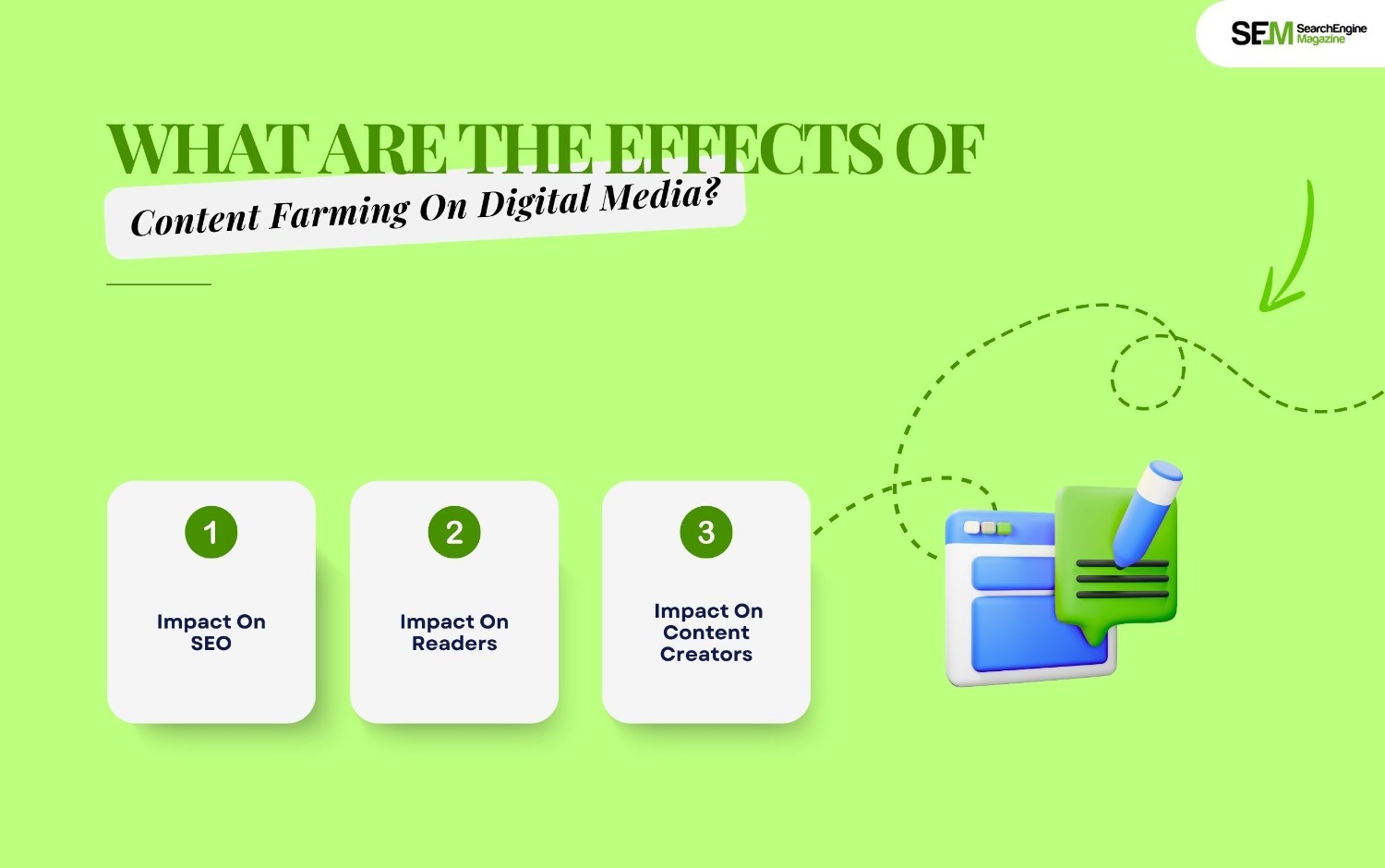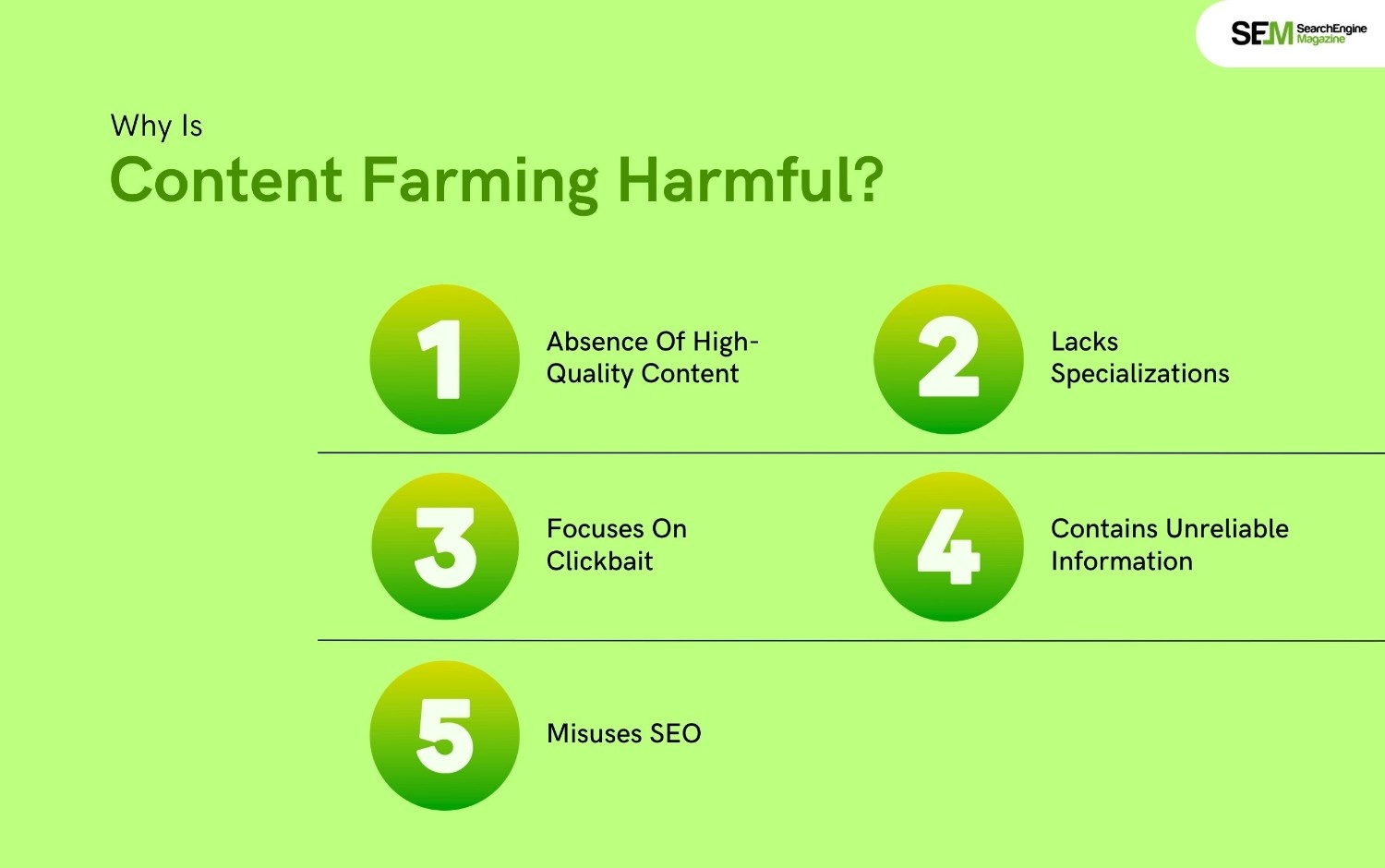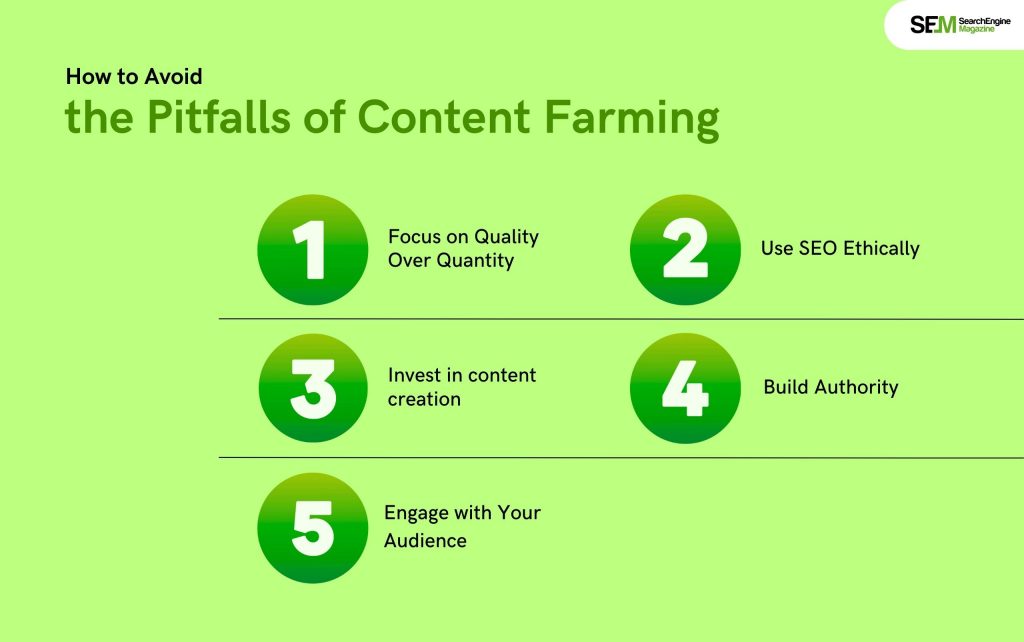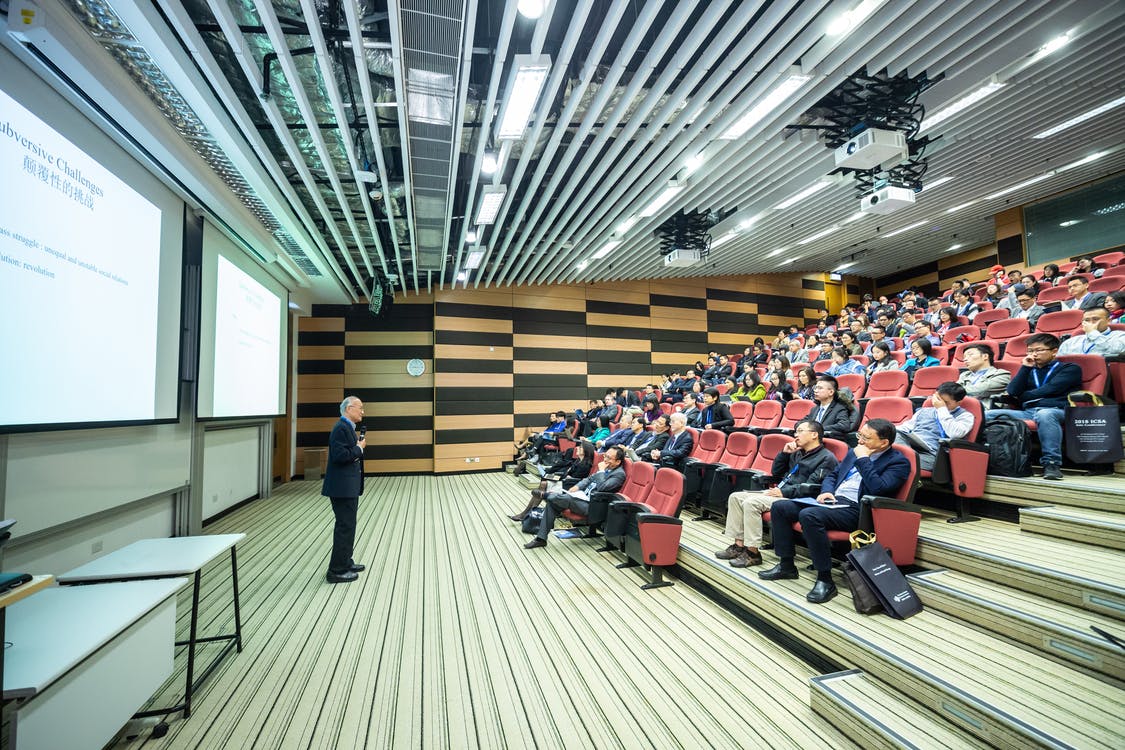How Law Firms In San Francisco Can Benefit from SEO
Feb 28, 2026

Feb 28, 2026

Feb 28, 2026

Feb 27, 2026

Feb 27, 2026

Feb 26, 2026

Feb 26, 2026

Feb 25, 2026

Feb 25, 2026
Sorry, but nothing matched your search "". Please try again with some different keywords.


Content has grown dramatically in the digital age, but new challenges emerge in how information is produced, consumed, and valued.
One practice that has generated much debate is content farming. Though it does allow for mass production of articles and pages, it raises complex issues for SEO, readers, and content creators.
Understanding what content farming is, its impact, and how to avoid it can help you create meaningful, engaging, and high-quality content.

Content farming involves creating a large number of low-quality articles to generate traffic and improve search engine rankings. Content farms often put quantity over quality, creating articles full of keywords but lacking in value.
Articles created with content farming are usually done to rank highly in search engine results for trending topics or high-volume keywords rather than having meaningful insights or expert opinions.
Content farms usually rely on automated tools or outsourcing for the mass production of articles, typically on many topics. This approach, although bringing traffic, normally leads to shallow, unoriginal content that has no value for the readers.
The more content you produce, the more it will get consumed – and the more opportunities for earning revenue.
Yep! Content farms can easily monetize their video content, incorporate affiliate links into their blogs, and advertise services or merchandise underneath memes. Moreover, the operation entirely depends on generative AI tools and freelancers with low salaries.
Also, there are some content farms that are typically built on the credible foundation of existing social media profiles, websites, and brands. It is really a tale as old as time itself – remember that funny page on Instagram that you followed five years ago? Why are they suddenly producing random content and strange memes? It is because the page is either a content farm, hacked, or has been sold to a content farm.
Content farms earn money by just ensuring that costs stay low. See, it’s simple. Such farms generate bulk content either using AI or by outsourcing from countries where salaries are relatively low.
The result? A stream of memes, videos, and blogs that can be easily monetized.

If you want to know about the impact of content farming on digital media, let me share with you some of it. It is also important to consider the aspects of content farming with regard to the way digital marketing is directly influenced.
Content farming can also be detrimental to long-term SEO. While this can bring in high traffic, because of the massive amount of content written towards popular search terms, Google is now getting smarter at finding low-quality content.
Panda and BERT updates are specifically to focus on high-quality research work and user-friendly content. Content farming strategies focus on quick fixes like keyword stuffing and content spamming.
Penalties often arise, making such sites less visible in search results. Content farming SEO built on it eventually becomes unsustainable. Its contents will rank for a short time, but eventually, it will get pushed down to favor authoritative and quality-driven websites.
For readers, content farming leads to a poor user experience. Articles may provide little meaningful information because of the overwhelming focus on keyword optimization over substance.
Many content farm articles are generic and often rehashed from other sources, leaving readers frustrated as they search for genuinely helpful or informative content. This undermines trust in the sources and discourages return visits to such sites.
Also, users are more likely to read clickbait headlines and superficial content made simply with a click, which cheapens the content on the Internet.
Content farming can lead content creators to a race to the bottom. Writers are mostly compelled to produce large amounts of content quickly, often without having the time and resources to research or hone their work.
This will lead to burnout and dissatisfaction as they may be compensated based on volume rather than quality.
In addition, dependency on SEO tricks and short-term ranking strategies can also affect the creative process because content creators may be forced to chase traffic instead of creating valuable, original content. This can impact the integrity of the work and the reputation of the creators.

Doesn’t the whole idea sound shady – it reminds me of ‘get rich fast’ scams! And if that is how you feel, too, then you will be happy to know you are right. Content farming is just harmful, and I’ve listed all the points that make bulk content production so harmful.
Content farms rarely produce high-quality content. Instead, you will see that the content lacks depth and, most importantly, fails to add any value to the reader.
The content generated by content farms often lacks authority in one specific niche. Moreover, such type of content is unplanned and unrelated – instead, it tends to jump on the next top trend!
Such content often prioritizes views and impressions over value. So, you will see the content is designed like clickbait – it might fail to add any value, but it will definitely make you want to click on it.
The content is mostly not subjected to proofreading or fact-checking. As a result, you will often come across visual slip-ups and grammatical errors in such content.
Content farms capitalize on SEO by mass-generating content on topics with high search volume, but often fail to add any actual insight to the content. So, it fails to add value, which goes against the content guidelines of Google and other search engines.
Content farms are harmful – but will you be able to identify one? What do content farms actually look like? Well, I’ve spent nearly a decade in the content industry – and I can help you identify a content farm.
Based on my experience, research, and interviews with peers, here are some of the top signs to look out for.
Content farming will face even more critical challenges as AI continues its development. AI can produce a huge number of texts in a small amount of time, giving content farms the ability to produce more articles.
However, AI also has its risks. While content generated by AI may speed up efficiency, it would also continue to produce low-quality and repetitive content that lacks the creative and nuanced ideas human writers bring about.
But on the other hand, AI presents an opportunity for improving the quality and content.
AI content optimization tools, such as grammar checkers, keyword research, and readability analysis, help content developers increase the value of their products. Besides, Google and other search engines are starting to use AI more and more to evaluate quality content.
What this means is that the more time passes, content farming will even become an ineffective activity. The future of content farming is to be more personalized, high-quality content that engages the readers rather than just clicks.

There are several pitfalls when it comes to content farming. I am discussing this aspect of content with regard to evaluation.
Prioritize the creation of high-quality content that provides value to your readers. Instead of churning out numerous articles, focus on producing well-researched, thoughtful pieces that meet your audience’s needs.
SEO is important, but it should not be at the expense of user experience. Optimize your content for search engines without keyword stuffing or misleading tactics.
Instead of going for the cheapest content producer, invest in professional writers who will produce well-thought-out original content. Your writers must be given sufficient time and resources to research and deliver quality content.
This is where you try to build authority in your niche by offering deep insights, unique perspectives, and expert advice. By focusing on real value, you will naturally attract more traffic and better rankings.
Build a relationship with your readers by responding to comments, encouraging discussions, and understanding their preferences. That engagement can help you create more targeted and valuable content.
Avoid using clickbait headlines since they may not relate to what one may find inside. Clickbait headlines can be hazardous to your reputation and send readers away.
By taking a few of these steps, you would then stay away from the pitfalls that content farming poses and help create value for readers, along with sustainability in your digital presence.
Unfortunately, yes!
Content farming can be perceived as a shortcut and easy way to drive traffic, but the long-term implications for SEO, readers, and content creators are generally negative.
While it works well in the short term, quality is compromised, resulting in lower engagement, unhappy readers, and even search engine penalties.
The future of content farming is unlikely to remain effective as the digital landscape continues to evolve, particularly with AI.
To succeed in the digital age, content creators and brands must focus on creating high-quality original content that builds trust and engagement for audiences while contributing to long-term success.
Barsha is a seasoned digital marketing writer with a focus on SEO, content marketing, and conversion-driven copy. With 8+ years of experience in crafting high-performing content for startups, agencies, and established brands, Barsha brings strategic insight and storytelling together to drive online growth. When not writing, Barsha spends time obsessing over conspiracy theories, the latest Google algorithm changes, and content trends.
View all Posts
How Law Firms In San Francisco Can Benefit fr...
Feb 28, 2026
The Power Of Internal Linking For Restaurant ...
Feb 28, 2026
Can You Play The Google Zipper Game In 2026?
Feb 27, 2026
How To Make Money On Instagram? The EASIEST C...
Feb 27, 2026
AI Workflow Automation In The Era Of Google U...
Feb 26, 2026

